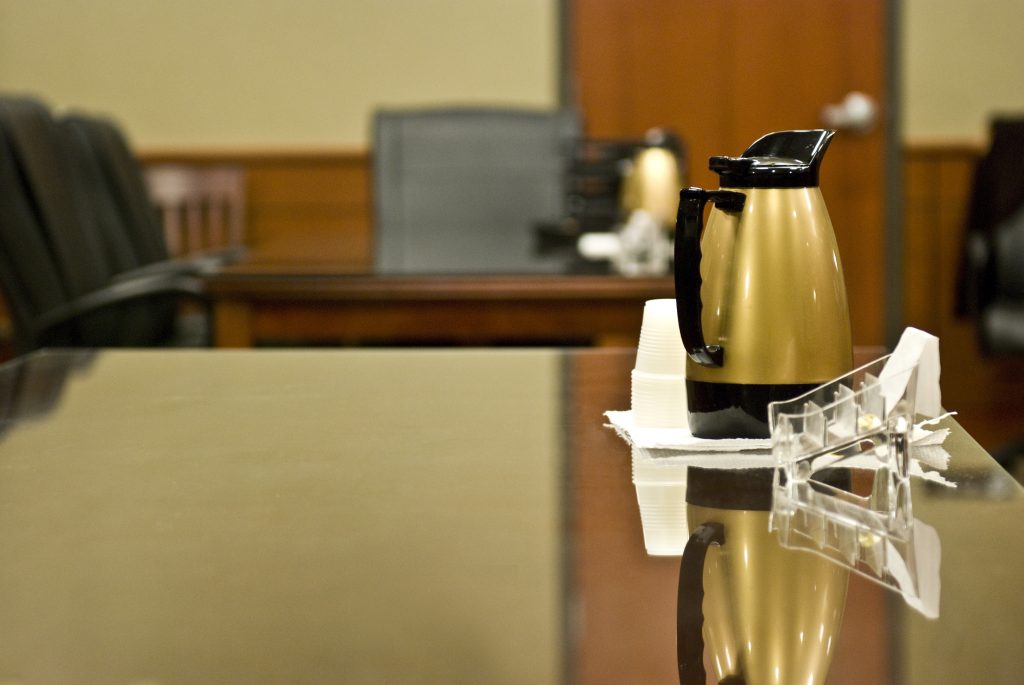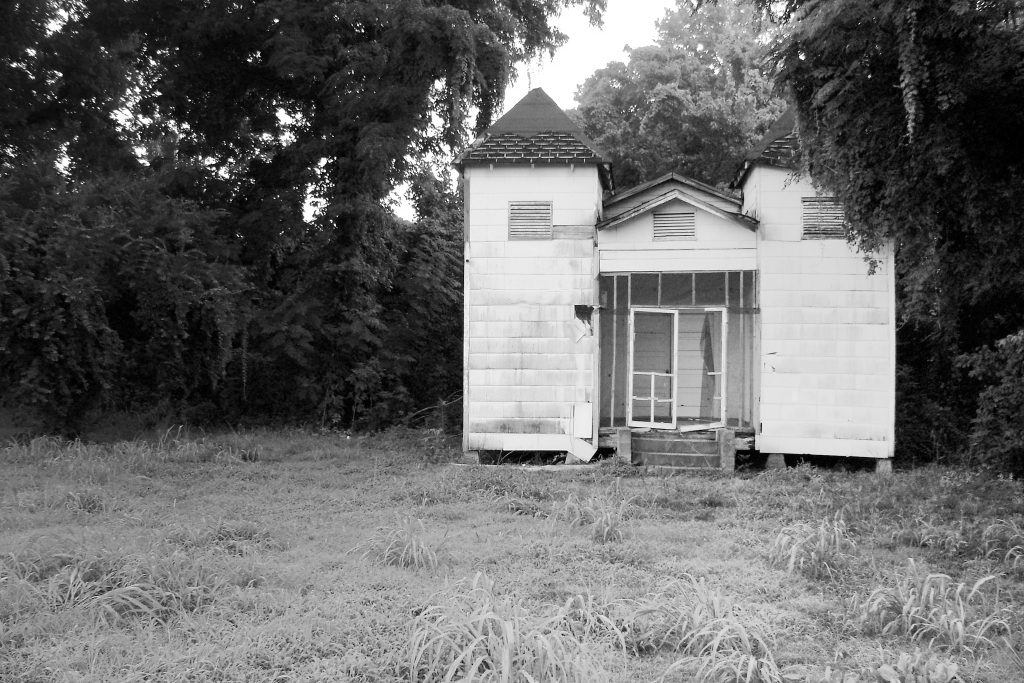 Employment discrimination can be damaging for both parties involved. It generally involves employee mistreatment, or a perception of such, that causes harm to the plaintiff. The employee must show that the employer treated him or her differently because of a federally protected reason, such as age, race, religion, or disability. Conversely, if the “at will” employee cannot prove he or she was fired for one of these reasons, there is no cause of action. Employment discrimination can be pursued in state court or federal court. However, when one court dismisses the action, a plaintiff cannot bring the same claim to another court. This idea is known as res judicata or claim preclusion, meaning “a matter already judged.” Having a good lawyer who knows the local and federal rules of civil procedure could save a plaintiff the time and money that comes with having their claims barred.
Employment discrimination can be damaging for both parties involved. It generally involves employee mistreatment, or a perception of such, that causes harm to the plaintiff. The employee must show that the employer treated him or her differently because of a federally protected reason, such as age, race, religion, or disability. Conversely, if the “at will” employee cannot prove he or she was fired for one of these reasons, there is no cause of action. Employment discrimination can be pursued in state court or federal court. However, when one court dismisses the action, a plaintiff cannot bring the same claim to another court. This idea is known as res judicata or claim preclusion, meaning “a matter already judged.” Having a good lawyer who knows the local and federal rules of civil procedure could save a plaintiff the time and money that comes with having their claims barred.
Recently, a professor at Louisiana State University (“LSU”) claimed the school discriminated against him for not obtaining sufficient grant money. The professor, Dr. Madhwa Raj, further alleged that the school administration harassed him and pressured him to retire. Dr. Raj claimed LSU even closed his laboratory in an effort to get him to retire. The harassment exacerbated his diabetes and led to him suffering neuropathy and chest pains. He also tore his rotator cuff, which required him to take an extended sick leave. Dr. Raj sued LSU, its Board of Supervisors (“LSU Board”), and the LSU Health and Sciences Center in New Orleans (“LSU Health”).
The professor’s complaints were dismissed in federal district court. Then, he filed in state trial court but added a Family Medical Leave Act claim. However, LSU used Res Judicata as a defense because the professor’s state court claims arose from the same operative facts as his federal court claims.
 Louisiana Personal Injury Lawyer Blog
Louisiana Personal Injury Lawyer Blog


 Contractual relationships and the relative obligations and rights that come with them can be difficult to decipher. There are so many clauses, provisions, and sections buried in these agreements that understanding the importance of certain matters can get lost in translation. In order to truly comprehend the exact obligations and rights that an individual or corporation has under an agreement, it is important to have the best attorneys drafting and reviewing the agreement. After all, these clauses are what govern the course of the parties’ professional relationship.
Contractual relationships and the relative obligations and rights that come with them can be difficult to decipher. There are so many clauses, provisions, and sections buried in these agreements that understanding the importance of certain matters can get lost in translation. In order to truly comprehend the exact obligations and rights that an individual or corporation has under an agreement, it is important to have the best attorneys drafting and reviewing the agreement. After all, these clauses are what govern the course of the parties’ professional relationship. The right to jury trial is a fundamental part of our government, enshrined in its own amendment to the Constitution.
The right to jury trial is a fundamental part of our government, enshrined in its own amendment to the Constitution.  An appeal is the legal system’s way of letting the losing side have one, or two, additional chances at making their case before the final bell rings. The losing side can, and often does, argue for virtually every perceived problem or slight that occurred in the lower court proceedings. But, this is also why appeals are generally only available after the trial or lower court proceedings have ended. Of course, this being the law, there are exceptions to just about every rule. It is critical, however, to have an attorney who knows the rules and their exceptions so that they are then capable of making savvy choices on how and when to appeal.
An appeal is the legal system’s way of letting the losing side have one, or two, additional chances at making their case before the final bell rings. The losing side can, and often does, argue for virtually every perceived problem or slight that occurred in the lower court proceedings. But, this is also why appeals are generally only available after the trial or lower court proceedings have ended. Of course, this being the law, there are exceptions to just about every rule. It is critical, however, to have an attorney who knows the rules and their exceptions so that they are then capable of making savvy choices on how and when to appeal. Louisiana is an “at-will” state when it comes to employment meaning when the employer and employee have not agreed to a limited term of employment, either the employee or the employer can break the relationship at any time without a reason. Term employment involves a stronger and a more defined agreement through a contract that is usually written, but that can also be established orally. An important part of such a contract defines the length of the employment – it can be, for example, for a given number of weeks, months, or years. In such employment, there must be a good reason for either side to terminate the relationship. Since there is a contract in this employment type, there are generally consequences for ending the relationship without a good reason.
Louisiana is an “at-will” state when it comes to employment meaning when the employer and employee have not agreed to a limited term of employment, either the employee or the employer can break the relationship at any time without a reason. Term employment involves a stronger and a more defined agreement through a contract that is usually written, but that can also be established orally. An important part of such a contract defines the length of the employment – it can be, for example, for a given number of weeks, months, or years. In such employment, there must be a good reason for either side to terminate the relationship. Since there is a contract in this employment type, there are generally consequences for ending the relationship without a good reason. Litigation is very complicated, particularly amongst the weeds of appeals and motions. This is illustrated very well in a case out of the Louisiana state Fifth Circuit Court of Appeal. One of the most important things it teaches is that it is invaluable to have a knowledgeable attorney who is familiar with summary judgments and appeals so the correct motions and pleadings can be filed on behalf of the client.
Litigation is very complicated, particularly amongst the weeds of appeals and motions. This is illustrated very well in a case out of the Louisiana state Fifth Circuit Court of Appeal. One of the most important things it teaches is that it is invaluable to have a knowledgeable attorney who is familiar with summary judgments and appeals so the correct motions and pleadings can be filed on behalf of the client.  When bringing a case for damages for wrongful termination due to age discrimination, a former employee must demonstrate that despite their age (or other considerations), they are capable of performing the duties associated with the position from which they had been fired. Failure to do so may result in a dismissal of the lawsuit.
When bringing a case for damages for wrongful termination due to age discrimination, a former employee must demonstrate that despite their age (or other considerations), they are capable of performing the duties associated with the position from which they had been fired. Failure to do so may result in a dismissal of the lawsuit. Lawyers owe a fiduciary duty to their clients, corporate directors owe a fiduciary duty to the corporation’s shareholders, and trustees owe a fiduciary duty to the beneficiaries of a trust. So, what is a fiduciary duty? Simply put, it’s a duty of the “fiduciary” (i.e., lawyers, corporate directors, trustees, etc.) to act solely in the interest of the person to whom the duty is owed, and the law does not tolerate breaches of that duty (whether by acts of self-dealing, incompetence, etc.). If you find yourself in a situation where you believe someone has breached their fiduciary duty to you, you may be entitled to judicial relief for the harm you suffered because of that breach of duty.
Lawyers owe a fiduciary duty to their clients, corporate directors owe a fiduciary duty to the corporation’s shareholders, and trustees owe a fiduciary duty to the beneficiaries of a trust. So, what is a fiduciary duty? Simply put, it’s a duty of the “fiduciary” (i.e., lawyers, corporate directors, trustees, etc.) to act solely in the interest of the person to whom the duty is owed, and the law does not tolerate breaches of that duty (whether by acts of self-dealing, incompetence, etc.). If you find yourself in a situation where you believe someone has breached their fiduciary duty to you, you may be entitled to judicial relief for the harm you suffered because of that breach of duty.  If you believe you have been misrepresented by an attorney, or that your legal counsel in any way acted wrongfully or neglected your legal needs, you may have a cause of action for legal malpractice. However, the time limit for when you may bring such an action to court is relatively short, and very strictly enforced, so it is important to retain new counsel as soon as the legal malpractice occurs or as soon as you first learn about it, so that you do not miss your window of opportunity to bring a malpractice claim. The following case demonstrates the problems that can arise when you wait too long to bring a legal malpractice claim before the court.
If you believe you have been misrepresented by an attorney, or that your legal counsel in any way acted wrongfully or neglected your legal needs, you may have a cause of action for legal malpractice. However, the time limit for when you may bring such an action to court is relatively short, and very strictly enforced, so it is important to retain new counsel as soon as the legal malpractice occurs or as soon as you first learn about it, so that you do not miss your window of opportunity to bring a malpractice claim. The following case demonstrates the problems that can arise when you wait too long to bring a legal malpractice claim before the court.  Be careful what your getting into when you attend a timeshare presentation. While you may get a “free” vacation for sitting through the sales pitch, you could be getting into more trouble then it is worth. This was the case for over one hundred purchasers of timeshares who bought from Festiva Resorts, LLC and Festiva Development Group, LLC. Festiva held sales presentations in New Orleans, Louisiana, for points based timeshares memberships.
Be careful what your getting into when you attend a timeshare presentation. While you may get a “free” vacation for sitting through the sales pitch, you could be getting into more trouble then it is worth. This was the case for over one hundred purchasers of timeshares who bought from Festiva Resorts, LLC and Festiva Development Group, LLC. Festiva held sales presentations in New Orleans, Louisiana, for points based timeshares memberships.